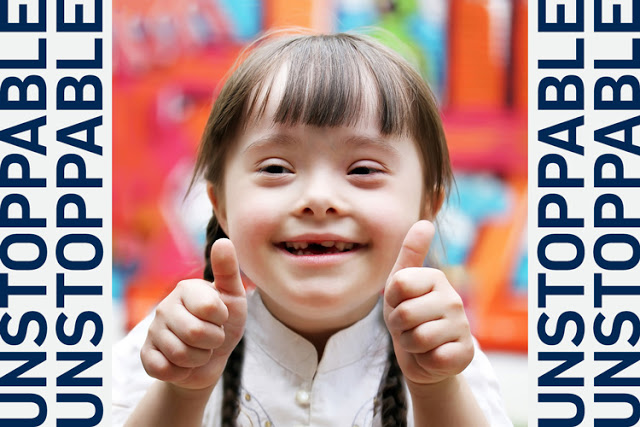In last week's Torah portion, "Yitro," the Jews travel to a part of the desert called Sinai. There, G‑d tells them that if they accept the Torah, they will be a chosen and special nation. The Jews respond, "Everything that G‑d has said, we will do!" They are told to spend the next three days preparing for a very big event that will take place on Mount Sinai.
On the third day, there is booming thunder and flashes of lightning, and the Jews all go to Mount Sinai. There, they see a thick cloud over the mountain and hear a long, powerful blast of a shofar. Then G‑d comes down to the mountain and proclaims the Ten Commandments. These Ten Commandments set the standard for goodness in the world.
In honor of Jewish Disabilities Awareness, Inclusion, and Acceptance Month, here are the 10 commandments of communicating with people with disabilities.
The 10 Commandments of Communicating with Someone with Disabilities
1. Speak directly to the person
Always speak directly to the person. Do not speak through a companion or a service provider.
2. Offer to shake hands
Always use the same good manners in interacting with a person who has a disability as you would with anyone else.
3. Identify yourself when speaking to a person who is blind
As a common courtesy, always identify yourself when entering and/or leaving the room. This helps to make a person who is blind feel more comfortable.
4. Wait for a response and instructions when offering assistance
If you offer any kind of assistance, wait until the offer is accepted. Then listen to the person's response and/or ask for suggestions or instructions.
5. Treat adults as adults
Always be courteous. Do not assume familiarity with someone you do not know well by using a first name or touching his/her shoulder. Do not patronize or make decisions for the person.
6. Do not hang or lean on a person's wheelchair
People who use wheelchairs depend on them to get them from here to there. The wheelchairs are a part of them, so please be courteous.
7. Listen attentively
If a person has difficulty speaking or speaks in a manner that's difficult for you to understand, listen carefully, then wait for her/him to finish. If needed, clarify what the person has said. Ask short questions that can be answered with a yes or no or a nod of the head. Never pretend to understand. Reflect what you have heard and let the person respond.
8. Speak to people at eye level
Use common courtesy when interacting with someone who uses a wheelchair. Sit in a chair (or bend down, if a chair is unavailable) so you can be at eye level. This helps make the person feel more comfortable and included as an equal in the conversation.
9. Tap a person who is deaf on her/his shoulder
To get the attention of someone who is deaf, tap the person on the shoulder or wave a hand in her/his direction. Once you have the person's attention, speak in a normal tone. Keep objects away from your mouth so the person can read your lips. Be courteous. Do not shout.
10. Relax!
The most important thing to remember when interacting with people with disabilities is to BE YOURSELF. Do not be embarrassed if you happen to use common expressions that seem to relate to disability.
Jewish Disabilities Awareness, Acceptance, and Inclusion Month is a unified effort among Jewish organizations worldwide to raise awareness and foster inclusion of people with disabilities and those who love them. JDAIM is a call to action for all of us as we act in accordance with our Jewish values, honoring the gifts and strengths that we each possess.
JNF believes we can ensure that each Israeli enjoys a life of dignity, belonging, and purpose. Our donors and partners are setting the standard for goodness in the world. Person by person, family by family, community by community, JNF is changing the lives of Israelis with disabilities.
Yossi is a director of
JNF Task Force on DisabilitiesAll gifts donated to JDAIM from now until Feb. 29 will be matched up to $1 million.

